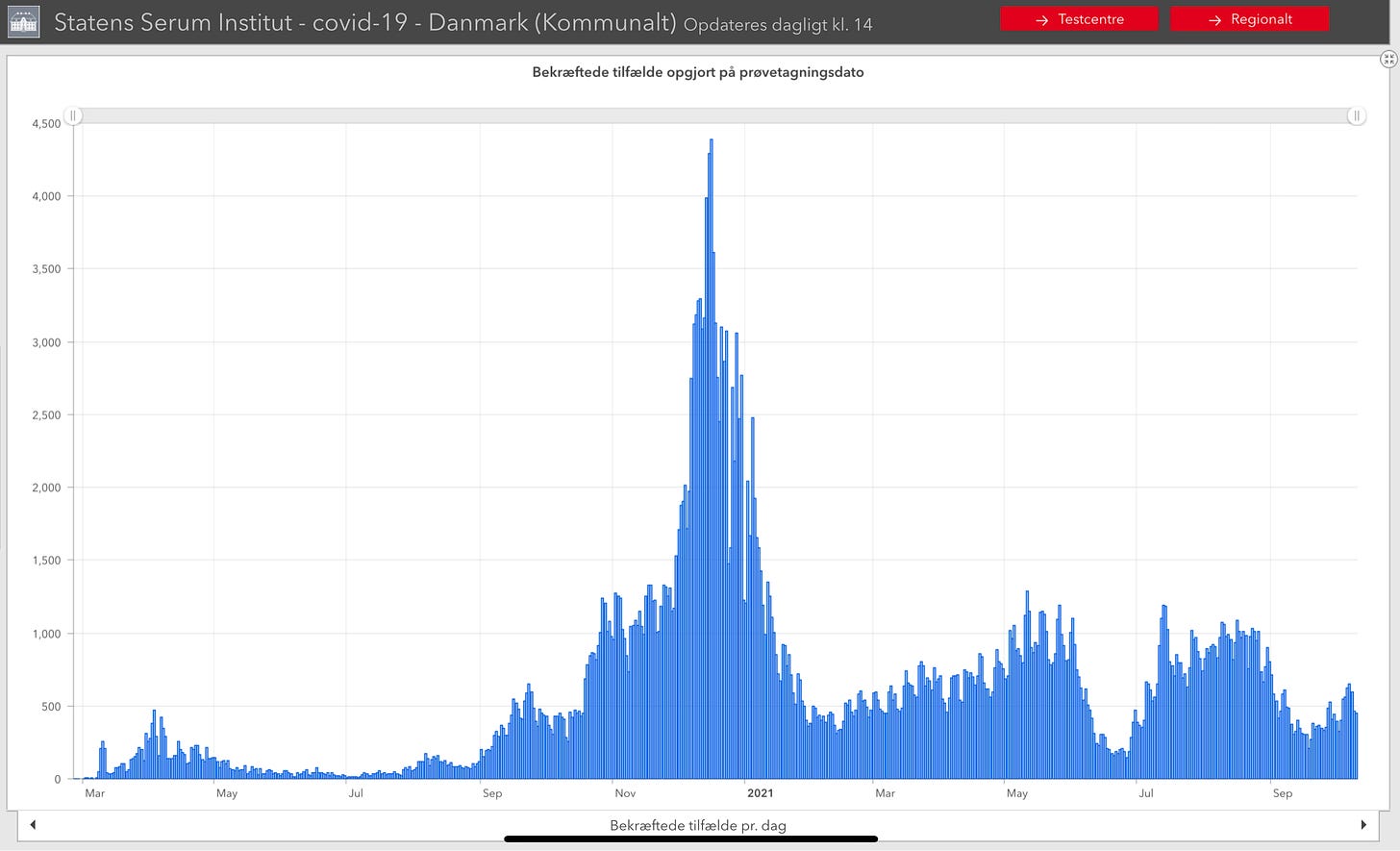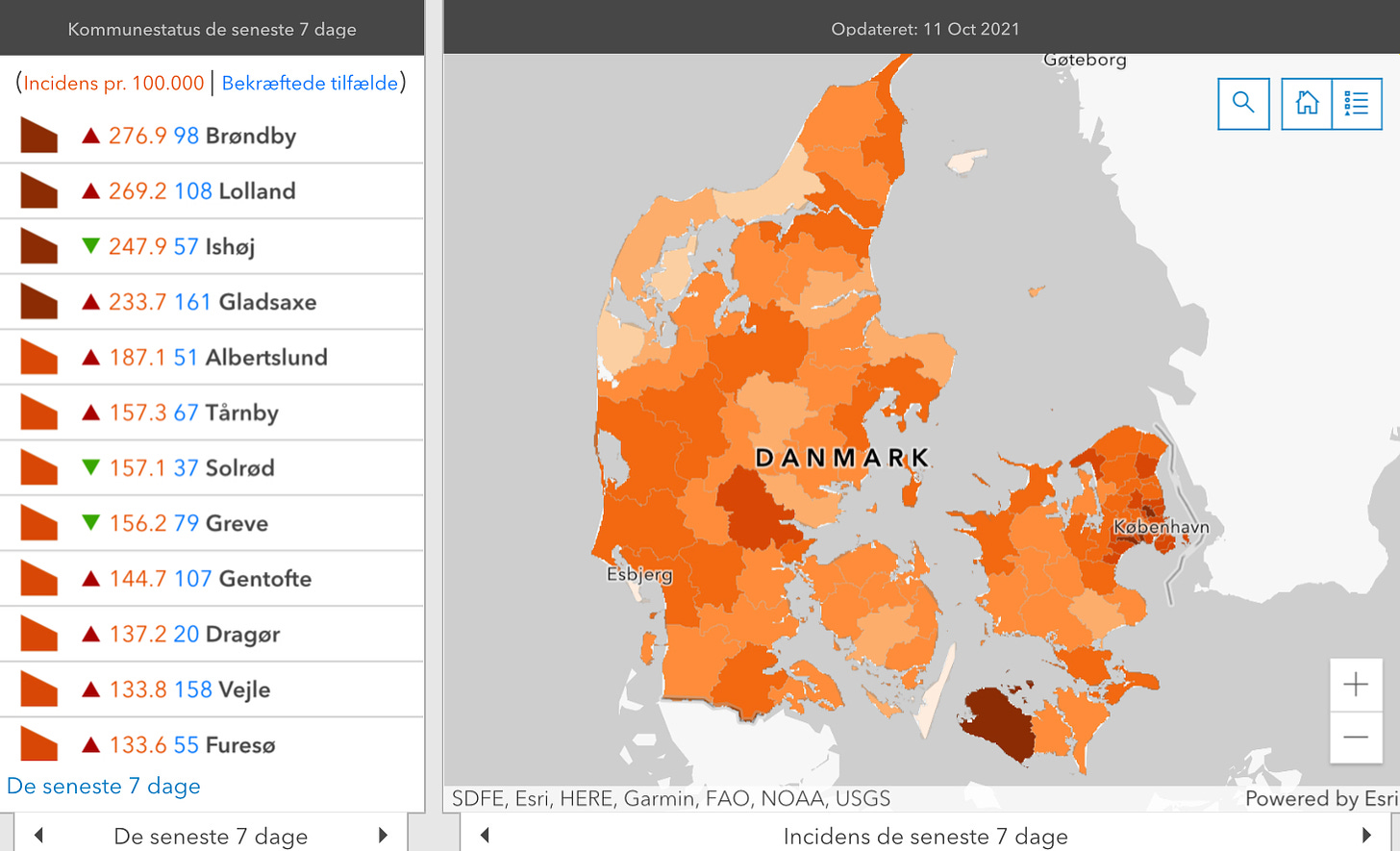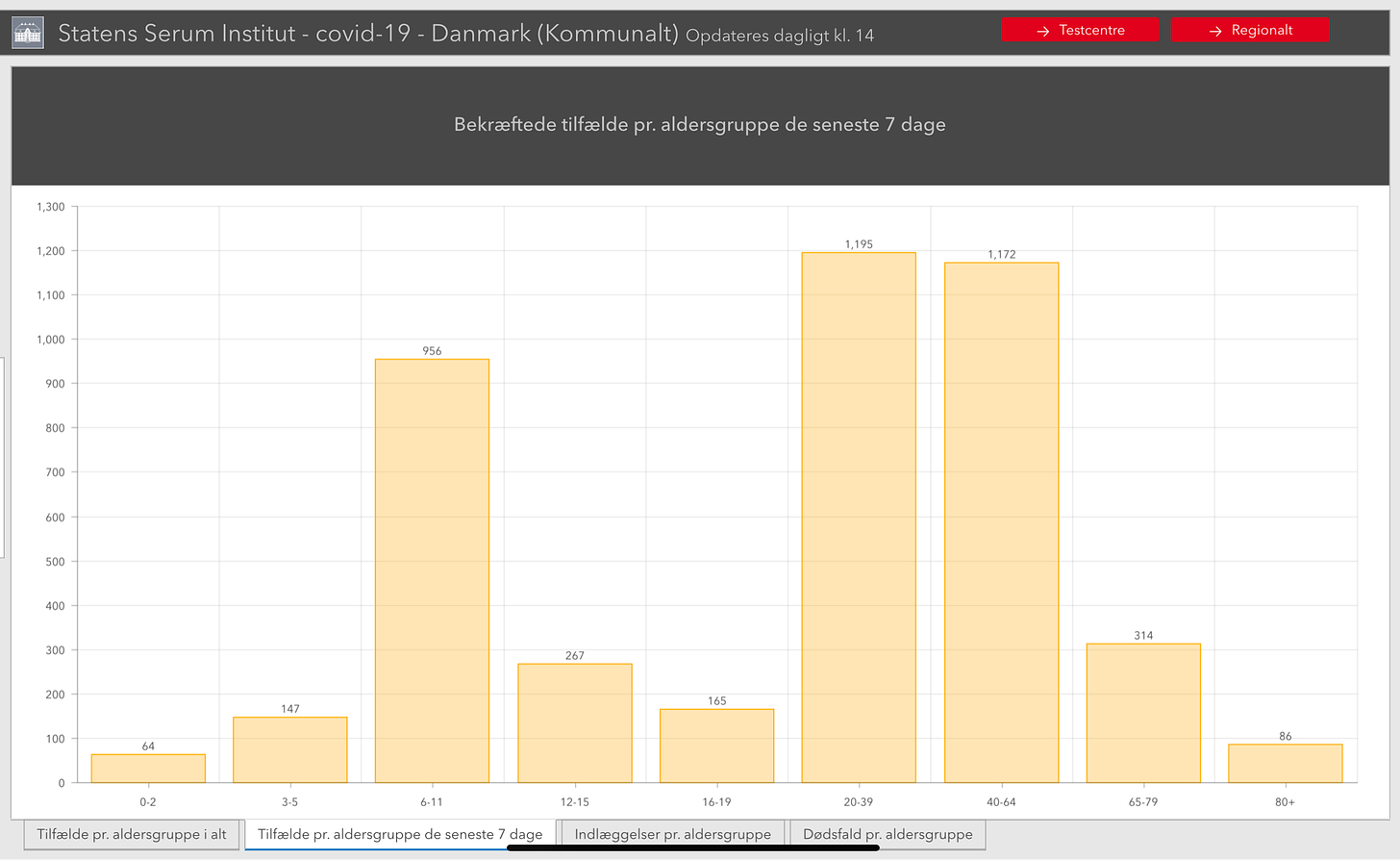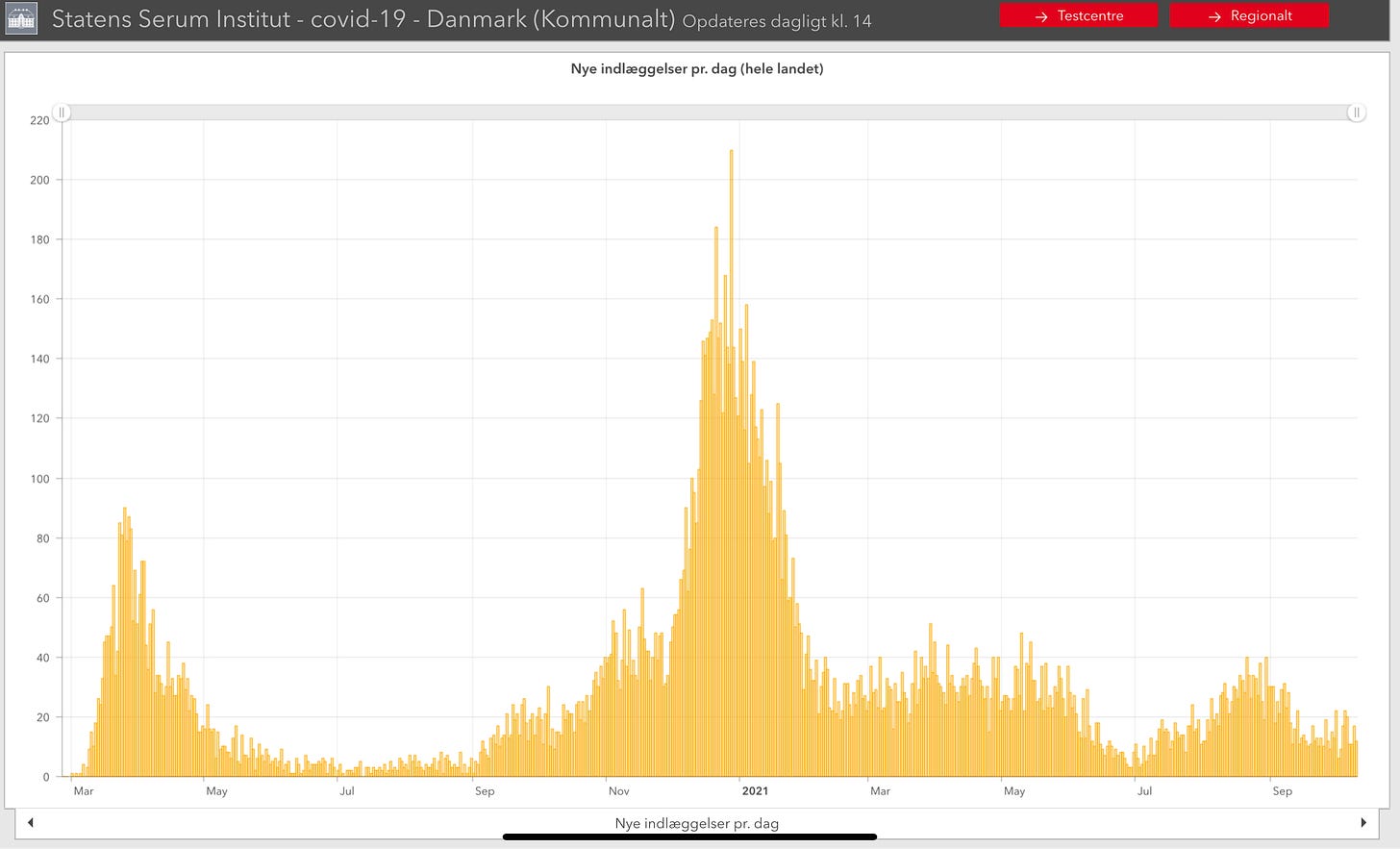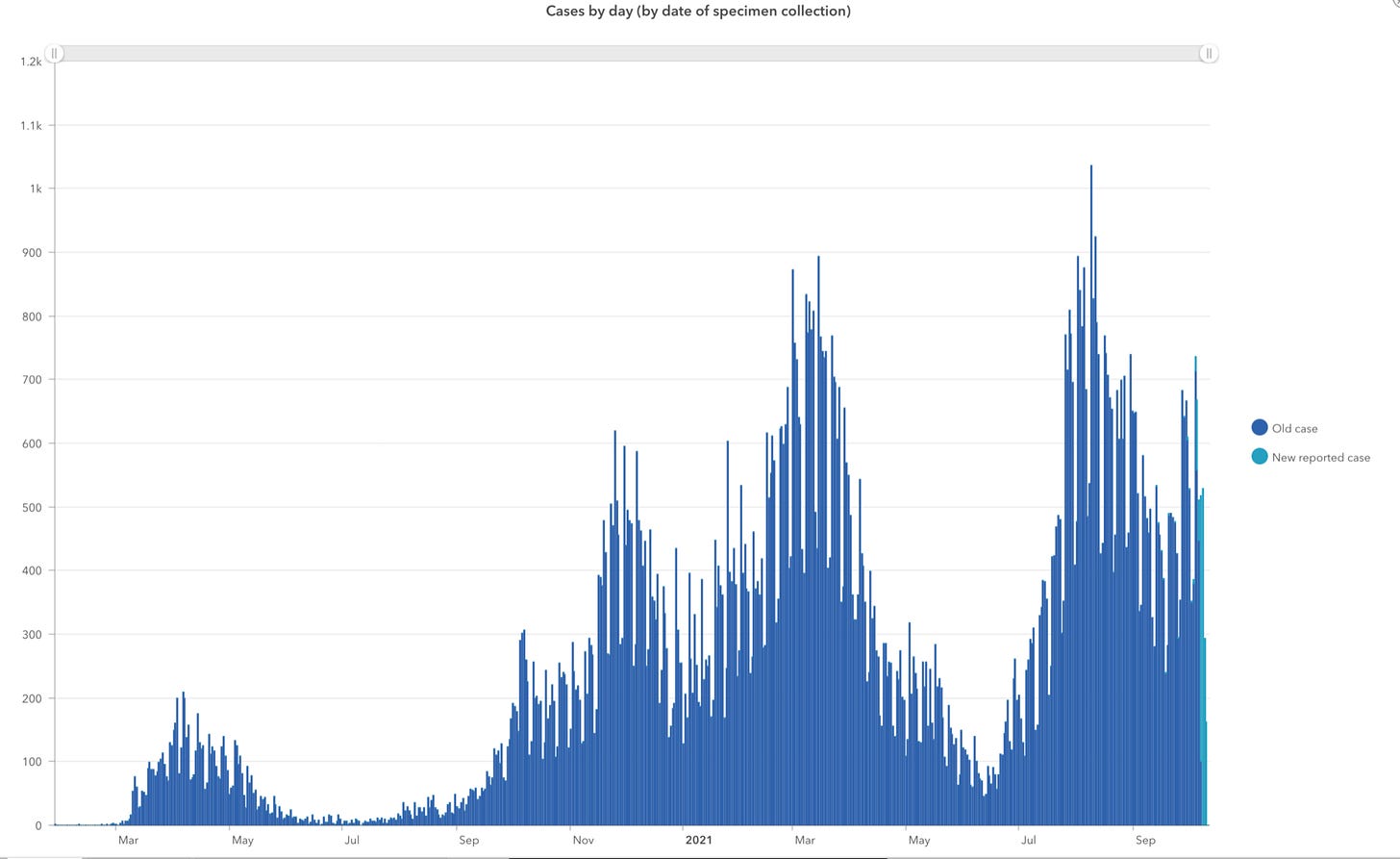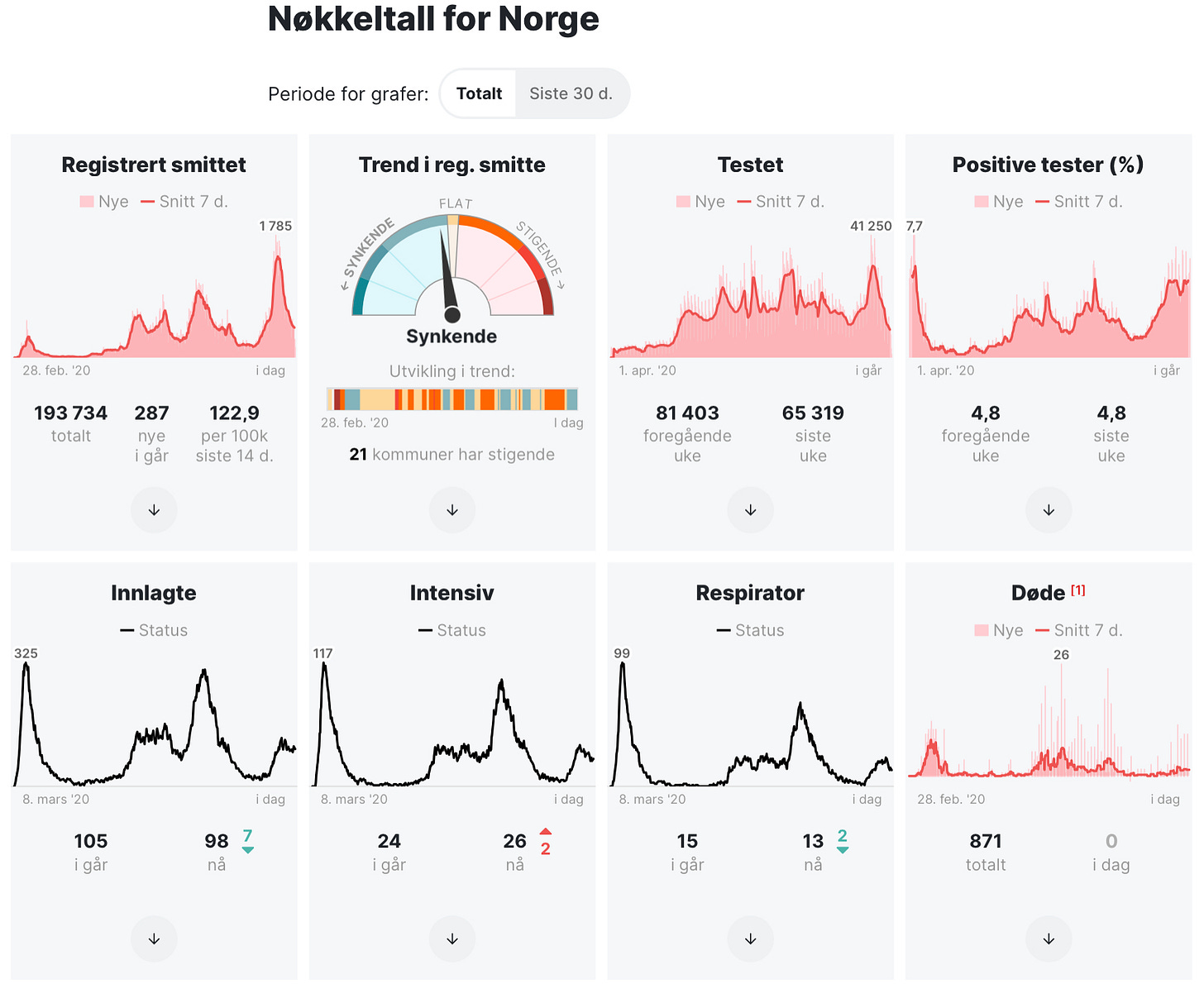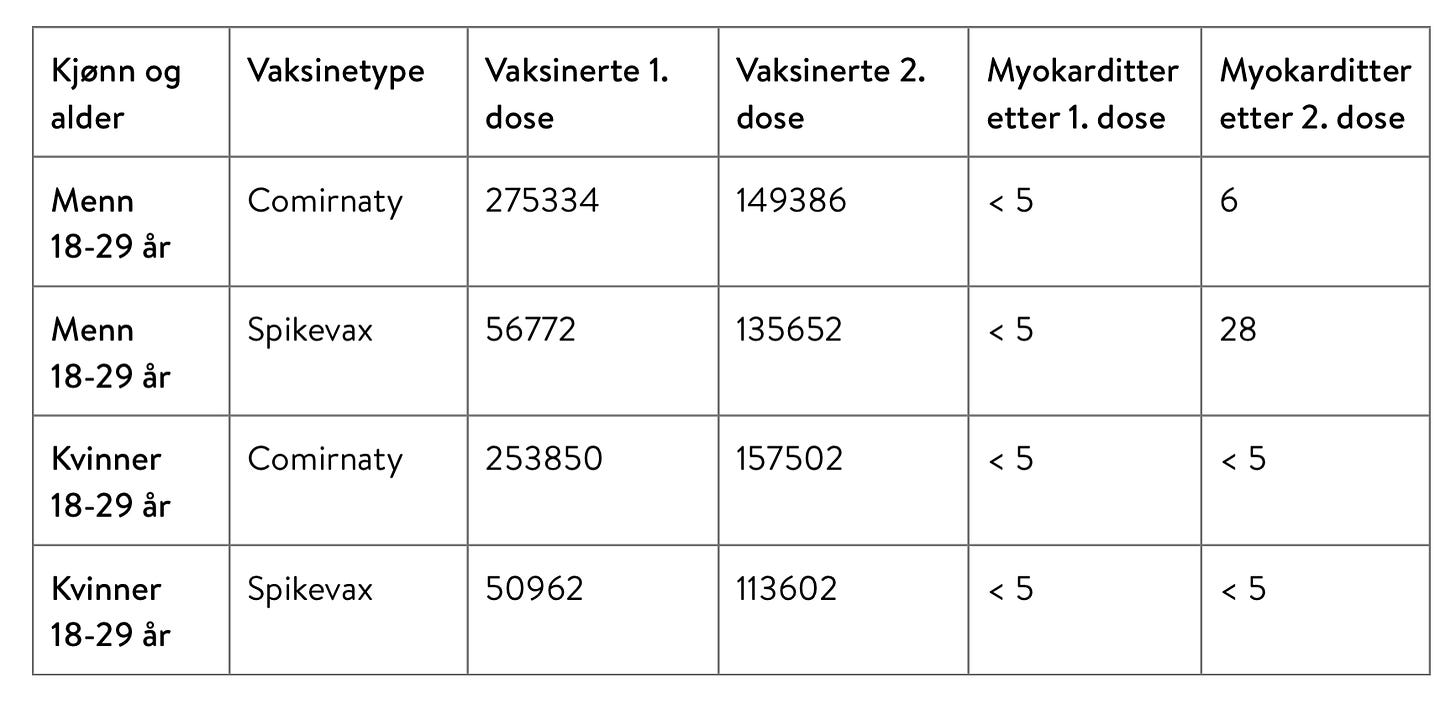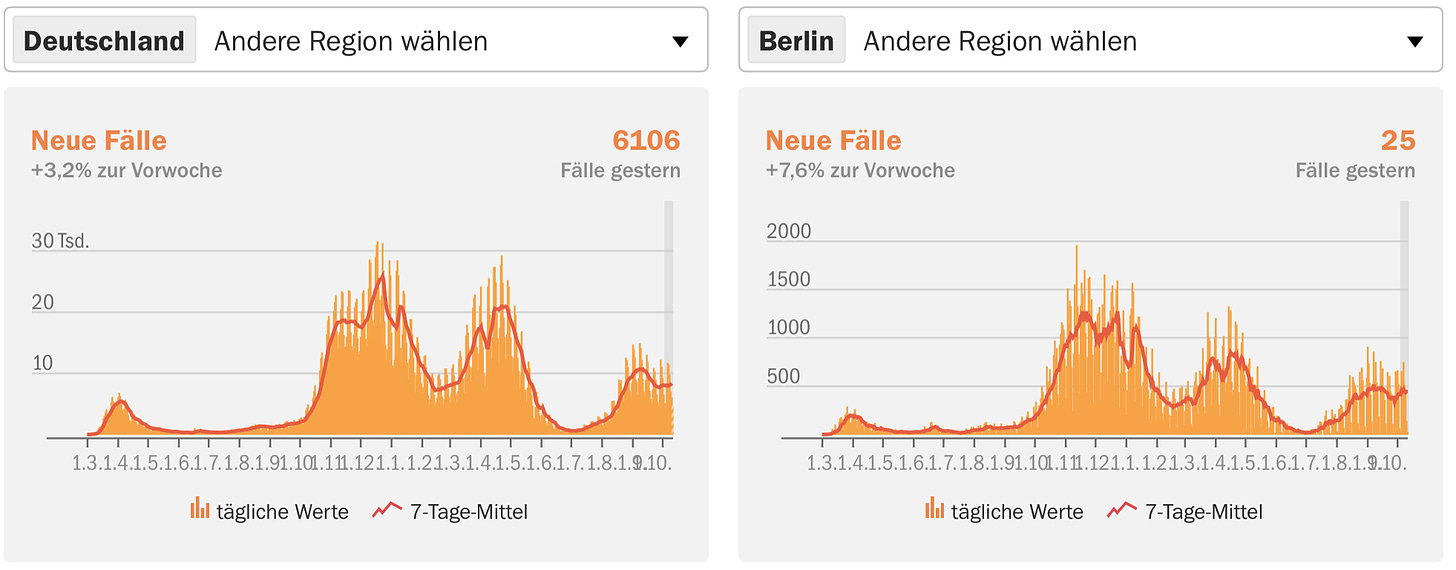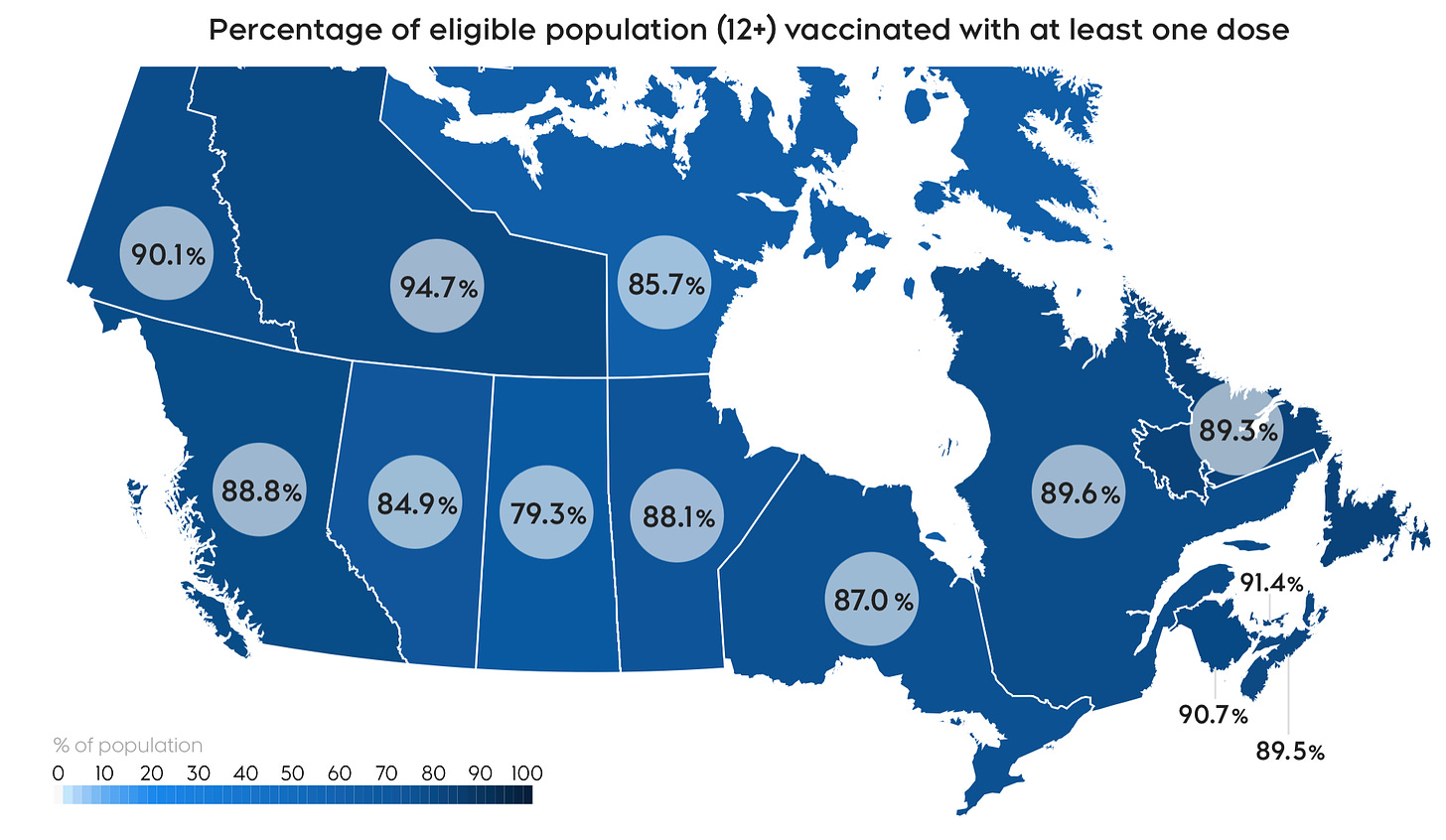🇩🇰
A Danish COVID treatment has been approved for clinical trials in humans. The treatment pioneered by a collaboration between Copenhagen’s Rigshospitalet and a Norwegian company called SoftOx is an inhalant that would inactivate viruses and kill bacteria.
Professor at the Department of Clinical Microbiology at Rigshospitalet and at the Department of Immunology and Microbiology, University of Copenhagen, Thomas Bjarnsholt says the idea could be a game changer, not just for COVID but for other respiratory infections.
“It is a treatment where you inhale a mild acid solution, which gives the immune system a helping hand in fighting infections in the respiratory tract from bacteria or viruses. The hope is that it should also be able to fight other infections such as pneumonia, influenza, and tuberculosis. All three are diseases that millions of people die of every year worldwide.”
With the inhalant going into clinical trials, another potential COVID treatment is now one step closer.
“It's a big day for us. The inhalation treatment is on its way to becoming a reality. And hopefully our next clinical trials will show that the treatment is safe in humans.”
The inhalant idea came from research into acid solutions to fight infections in wounds. The concept was then refined to target respiratory infections.
-
On the vaccination front to date, 76.1% of the total population has had one vaccine dose and 74.8% are fully vaccinated.
Yesterday there were just 2,731 total inoculations done with the most, 1,440, being booster shots and the least, 450, were 1st doses.
-
The Danish Health and Medicines Authority is going the music route to both thank people who have been vaccinated and encourage those that haven’t to get their shots.
A music video has been put out with Christoffer Læssøe doing a cover of Joker’s ‘Well taken’ with some creative rewriting of the lyrics aimed at the vaccination situation.
The authority says the vaccination holdouts are among those 20 to 35 years old, immigrant populations, and those 12 to 15 years of age.
The music video can be seen in movie theatres and across social media channels You can check it out HERE.
-
Denmark is reporting 564 COVID infections and two more coronavirus deaths in the last day.
Yesterday there were 36,351 PCR corona tests done for a positivity percentage of 1.55%. There were also 2,877 rapid tests done despite all rapid test sites being closed over the weekend.
-
The increase in infection activity is most clearly reflected in the number of Danish kommunes with coronavirus infection rates exceeding 100 per 100,000 residents. Currently there are now 20 municipalities over that mark and of those, four now have incidence rates above 200.
-
In the last seven days the most new infections were among people aged 20 to 64 years old. But there have been an eye catching number of COVID cases among young children especially those six to 11 years of age.
COVID hospitalizations (89) have increased slightly again (+6) while the number of infected people in an ICU (17) also edged upward (+2) and of those the number on a ventilator (12) inched up as well (+1).
-
Danish Prime Minister Mette Frederiksen suddenly found herself in the hot seat during her state visit to India. While the trip focused on climate change and the environment, suddenly the pandemic took center stage. Frederiksen was confronted with a question about why Denmark and the other western nations put themselves first in the global vaccination effort. According to a report from DR, the Statminister gave a blunt response.
“I will answer honestly. Although I'm not sure you will be happy with the answer. When you are prime minister, your first responsibility is your own people. As your own Prime Minister says: The nation first.”
Speaking to Ritzau later, Frederiksen softened her tone, saying she understands the frustrations in many of the world’s poorer countries who are struggling to get people vaccinated.
🇬🇱
While the Nordic nations restrict use of the Moderna vaccine for young people, especially young men, Greenland is going in a different direction. According to the newspaper Sermitsiaq Greenlandic health authorities have resumed Moderna vaccinations for young people between the ages of 12 and 17 years old. Greenland had curtailed use of the Moderna vaccine for young people on October 6 due to fears of the rare side effects impacting the heart.
🇸🇪
Region Stockholm is reporting that a surge in RS virus infections is now straining pediatric care resources in Sweden’s capital. While not supplying exact numbers, the regional health authority says “many young children” have been hospitalized.
Chief Physician Johan Bratt says hospitals in the region are seeing increasing pressure from dealing with COVID patients and now an influx of RS virus infection cases.
“Both the spread of infection and the number of patients with COVID in need of hospital care remain on a plateau. There is still a spread of infection, mainly among those who do not have full vaccination protection.”
Chief Physician Elda Sparrelid adds the RS virus situation is very concerning.
“There is a risk that the RS virus will affect many more people this year, especially newborns, and young children. We have been more isolated during the pandemic and have not had normal exposure to viruses and other usual infections. We do not know for sure when the RS virus infection wave will peak, which is worrying, as pediatric care has been strained for some time.”
The region is encouraging people to keep up with hygiene practices used in the pandemic with plenty of hand washing, staying at home if you feel sick, and keeping your distance from others.
“If you have children younger than 4 months whose older siblings go to preschool, it may be wise to keep the older child home from preschool for a few weeks to reduce the risk of infecting the little sibling with the RS virus. We know that many babies are infected by their older siblings.”
Denmark has also seen a major RS virus surge and Norway is reporting increasing numbers as well as the virus makes an early and ferocious return.
🇫🇮
Finland has registered 1,618 infections and four more corona deaths since Friday.
COVID hospitalizations (180) are up (+9) with 29 of those people in an ICU.
So far, 4,163,232 1st doses (74.3% of the total population) have been administered and 3,623,631 people (64.8%) have had both doses.
-
Finnish health authorities say that the COVID wastewater surveillance program has been incredibly successful. The Finnish Institute for Health has completed a ten month study comparing COVID detection results from 28 wastewater stations to infection rates in nearby communities. The report found wastewater sampling exceeded expectations in providing an early warning system for the spread of coronavirus in communities with a collective population of over three million people.
Finland has been an early adopter of the wastewater monitoring program. The idea has since spread across the Nordics, with countries like Denmark initiating similar programs.
Wastewater is sampled and sent for COVID testing. In Finland, as in Denmark, the results have almost always indicated infection activity in nearby communities before people begin to even get tested.
🇳🇴
Norway has added 172 infections and had no new virus deaths in the last day.
COVID hospitalizations (98) are down (-7) while ICU numbers (26) have nudged upward (+2) of those the number on a ventilator (13) are down (-2).
So far, 77.60% of Norwegians 12 years old and older have had one vaccine dose and 68.46% have had both.
-
After deciding that use of the Moderna vaccine will be curtailed for anyone 18 years old and younger, the Norwegian Institute of Public Health is now publishing statistics on myocarditis. The agency has responded to “increased incidence” of the rare side effect impacting the heart by also recommending that men under the age of 30 avoid the Moderna vaccine as well.
The NIPH says with 4.1 million first doses and another 3.6 million second shots administered so far, there have been 28 people hospitalized with myocarditis after a first shot and 61 after a second dose.
Assistant Director Geir Bukholm:
“We have continuous monitoring, and are continuously assessing whether the findings should lead to changes in our recommendations. Most myocarditis cases we have identified in Norway are relatively mild, but it requires hospitalization to make the diagnosis safely and clarify that there are no complications. Those who have been diagnosed with myocarditis have mainly had uncomplicated recoveries.”
Almost all of the myocarditis patients in Norway to date have been discharged from hospital within five days of a diagnosis.
Recently, Norway and the rest of the Nordic countries all restricted use of the Moderna vaccine due to concerns over myocarditis, and inflammation of the heart. The concern comes from data from a Nordic wide side effects study. That data has now been forwarded to the European Medicines Agency, which will review it and make a further recommendation in about a month.
-
As Norway returns to ‘normal’ with all COVID restrictions lifted as of September 26, the Norwegian Institute of Public Health is doing a pandemic assessment. The agency says while Norway has weathered the COVID storm remarkably well, some groups in the country have suffered negative impacts.
The assessment seems to take the tone that the pandemic in Norway is over and that the country has come through it with some of the lowest hospitalization and fatality rates in Europe. It has had over 330,000 total COVID infections to date, or about 6% of the population. It has also registered 871 total deaths so far with the national health agency saying that equates to slightly lower than an average flu season.
The NIPH also notes another pandemic silver lining “that may have an effect on public health in the long run.” Among them there have been marked decreases in the usual seasonal bugs like influenza; fewer people showed up in an ER for cardiovascular disease, and Norway is also seeing a bit of a pandemic baby boom, with more babies being born in the spring of 2021 than in 2020.
Among the negative impacts, the institute says geographically, the Oslo and Viken regions have born the brunt of COVID activity so far. Among specific groups, the agency says immigrant populations accounted for close to half of all hospital admissions. Young children also suffered due to lockdown-related school closures, with the hardest hit being already vulnerable groups of children and young people. Others that really struggled according to the assessment, were people dealing with mental health issues, unemployed people, and those that were single.
Director Camilla Stoltenberg:
“Norway has so far done well through the pandemic. We also have better conditions than many countries when considering an overview of the pandemic's health consequences in the population.”
The report’s conclusion includes a caveat that “it is too early to determine how large the health consequences of the pandemic will be in the long run. There is still a lot that is uncertain, and there is reason for special attention to long-term consequences in some groups.”
🇩🇪 🇨🇭
As of today, both Germany and Switzerland are largely dropping free COVID testing. Both countries still require vaccine passports to get your hair cut, see a movie, or work out in a gym, among other activities. Both countries have ended free COVID testing to try and get people who have not yet been vaccinated off the fence and into a clinic. Both governments suspect a segment of vaccine holdouts have been getting by using coronavirus testing to access activities without getting their shots.
Free COVID testing will still be available for children, people who have COVID symptoms, and those who cannot be vaccinated for medical reasons.
🇩🇪
The German government is investing €500 million in grants for public buildings to improve ventilation systems in order to prevent the spread of coronavirus. Public buildings include offices, museums, theaters, universities, and other school buildings. With COVID being spread by droplets in the air German health authorities are concerned about ventilation systems as the weather gets colder and more people spend time indoors.
The grants will be doled out up to a maximum of €100,000. Funding is also on the table for CO2 sensors, which can be used to monitor whether air in an indoor space is not properly ventilated.
The German government also wants to get schools without central air conditioning to bring in mobile air purifiers. At the least, they advise schools to open windows to ensure proper ventilation.
-
Germany has seen some rising COVID infection numbers recently. Today it reported 6,106 new infections and 14 more fatalities.
🇫🇷 🦠💉
A new study released in France today found that vaccination offers the absolute highest protection against hospitalization and death from a COVID infection. The research from Epi-Phare found being vaccinated with Pfizer/BioNTech, Moderna, or the AstraZeneca vaccines reduced the risk of hospitalization and death by 90%. The vaccines also appeared to provide protection against serious infections from the Delta variant.
Epidemiologist Mahmud Zureik, who oversaw the research, spoke with AFP.
“This means that those who are vaccinated are nine times less at risk of being hospitalized or dying from COVID than those who have not been vaccinated.”
The study spent seven months examining 22 million people over the age of 50. 11 million were vaccinated and the other 11 million were not. Subjects were also paired by age, sex, and geographic location for the closest possible comparison.
The study overlapped the emergence of the Delta variant by just one month, and while a short period results found vaccines reduced serious infections and prevented death by 84% among people over 75 and by 92% for those aged 50 to 74.
The study concludes:
“All the vaccines against COVID are highly efficient and have a major effect on the reductions of serious forms of infection among people aged 50 years and older living at the current time in France. The continuing research by Epi-Phare will allow us to measure the evolution of this efficiency over a longer period and better establish the effects on the Delta variant.”
🇪🇺🦠
The European Medicines Agency has begun the evaluation process for a COVID monoclonal antibody combination called Ronapreve. The treatment is to prevent serious infection cases for people 12 years old and older who have COVID. So these would be patients not yet in an ICU but who are at increased risk of having to need intensive care or being put on a ventilator.
The EMA will assess all available data submitted by the two companies behind the treatment and come back with a decision within two months. The data already submitted includes, among other things, the results of two clinical trials.
Ronapreve is made up of two monoclonal antibodies, casirivimab and imdevimab. It can be administered by either a shot or an IV drip. The monoclonal antibodies attach to the COVID spike protein, rendering it unable to enter the cells of the body it has infected.
🌏💉
The World Health Organization is now recommending that immunocompromised people be given a third dose of a COVID vaccine due to their increased risk of breakthrough infections. The recommendation from its strategic advisory group comes, in some cases, a month or more after countries like Denmark began administering booster shots to vulnerable groups including those who are immunocompromised.
The WHO panel also recommended a third vaccine dose for seniors 60 years old and older who have been vaccinated with the Chinese-made Sinopharm and Sinovac vaccines. Data from countries in South America where those vaccines are used most have shown declining efficacy, according to the panel.
💉
Vaccine maker AstraZeneca is touting a new antibody treatment it says offers protection against coronavirus. In a release, the pharmaceutical company says the treatment is showing good results in a third and final colonial trial. It says the antibody treatment reduced cases of severe infection and death by 67% among test subjects.
🇨🇦
Public Health Canada still has not updated its COVID dashboard due to the Thanksgiving holiday weekend.
-
So far, the Canadian vaccination effort has administered 29,305,760 1st doses (76.64% of the total population, while 27,417,784 people (71.71%) are now fully vaccinated.
Due to the holiday Monday, only a handful of provinces have updated their COVID numbers.
Quebec reported 480 new infections and lost five more lives to the virus. The province seems to be seeing a declining infection curve.
Saskatchewan logged 425 new coronavirus cases Monday, with 347 people in hospital and a record-high 79 in an ICU. The province is also reporting some 80 COVID outbreaks in schools.
In Atlantic Canada, New Brunswick registered 98 infections. It has seen its six highest-ever coronavirus caseloads in the last 14 days. Prince Edward Island saw three new infections.





